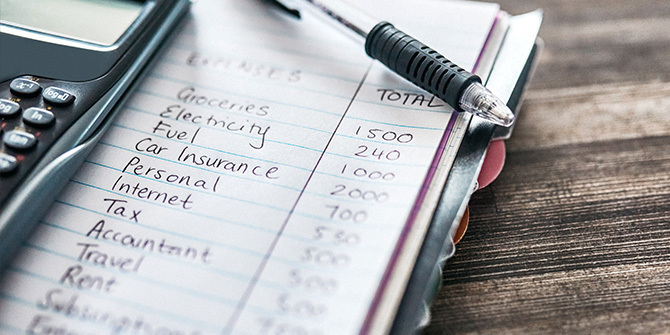
You probably know folks who appear to manage money easily. Getting a handle on your finances is easier than you may think. Here’s how they do it.
Start with goals
Setting realistic goals is important. Make your goals specific and achievable. For instance, maybe you want to pay off your debt, increase your savings or put more money in your 401(k) plan. You also might want to consider a plan to save for college or your next vacation. Let these ideas serve as your motivation to do the necessary work ahead
Create a budget
Understanding where your money goes is one of the most important actions you can take to improve your money management skills. It’s difficult to make immediate changes to fixed expenses like rent, mortgage or a car payment — but you may have more opportunities to adjust your variable expenses.
Variable expenses are those that vary month to month like groceries, gas and eating out. See what changes you can make now and create a budget that will enable you to meet your goals. Monitor your spending moving forward, compare actual spending to what you have budgeted, and always keep your goals in mind when modifying your budget.
How do you manage your budget?
Now that you’re actively managing your money, the trick is to figure out if you are doing it well. That starts with seeing where your money is going. See if you’re sticking to your budget. Hold on to all receipts. Check account balances online and credit card statements often, and monitor your transactions. Don’t forget to review your checkbook register and to reconcile actual spending against your budget.
Budgeting apps that help you manage your money may save you a little time each month analyzing your spending. They may even help you turn previously infrequent check-ins into a regular routine. A budget calculator can help you analyze your spending so you can see areas where you can reduce spending.
Anticipate emergencies
Goals and budgets can be instantly sidetracked by the unexpected. Consider creating an emergency savings fund based on three to six months of your fixed expenses by putting aside a small amount of money every month.
For example, you can open a second savings account for use as your emergency fund. A money market account, which typically offers a higher rate of return than your average savings account, can help you meet long-term savings goals.
End with goals
You started this process with goals as your motivation. Now you have more data to help you fine-tune those goals to be more specific and achievable. You’re well on your way toward being a better money manager!
But if you still need help, contact your local branch to receive no-cost financial counseling. We can help you with strategies to meet those financial goals.
The advice provided is for informational purposes only. Contact a financial advisor for additional guidance.